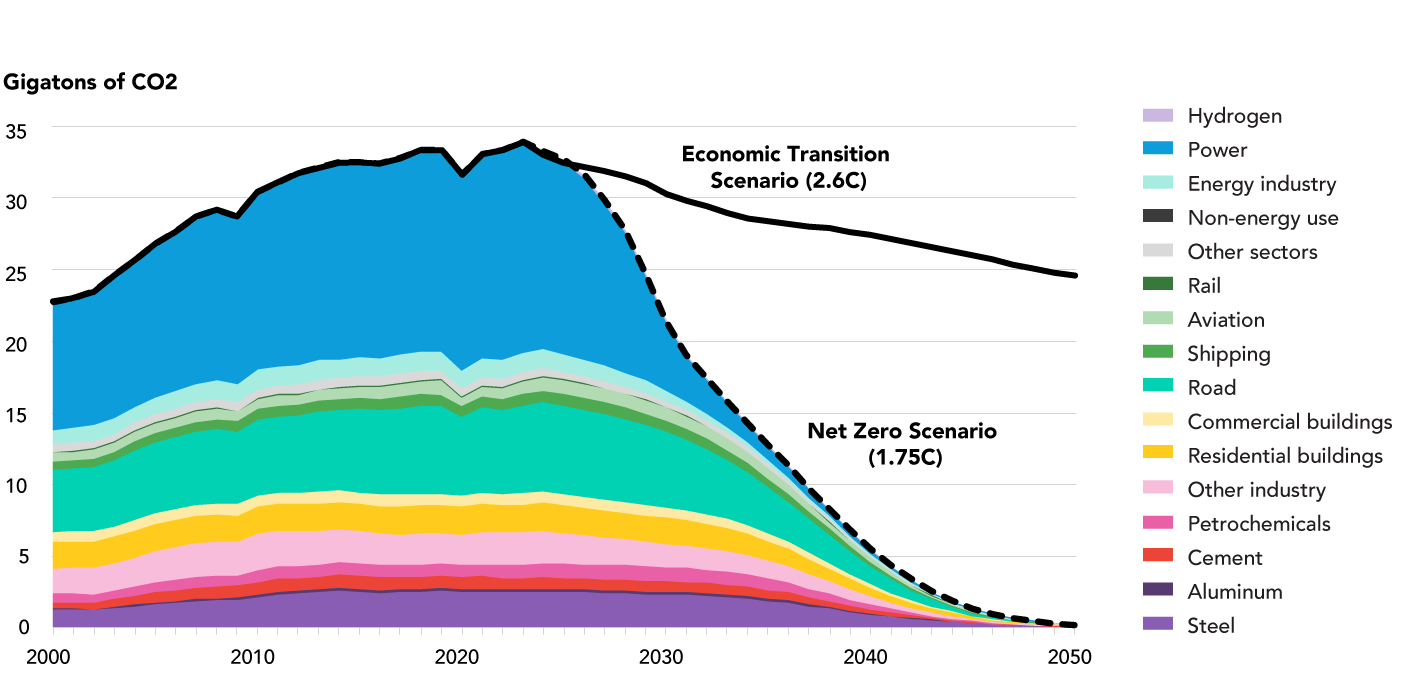Environment & Energy
Related: About this forumGlobal Emissions in Decline
(I'm skeptical about this, but any spark of hope is welcome)Source: https://mailchi.mp/regeneration.org/the-waggle-global-emissions-turning-point
The world reached a monumental tipping point in the past year, and this one is good! According to new data estimates from BloombergNEF, global carbon dioxide emissions are starting to fall for the first time since the start of the Industrial Revolution. The data aligns with projections made by Climate Analytics last November that 2023 was the year of peak emissions, led by the explosive growth of renewable energy capacity. While forecasting emissions is not an exact science, the fact that humans are finally reducing the production of greenhouse gases is certainly worth celebrating. However, the decline will not be a rapid one– even if combating climate change were a top priority of every nation and corporation (which it isn’t), it would take at least two decades to fully transition to net zero emissions. The BloombergNEF report lays out a spectrum of scenarios. The most optimistic is that the world will reach net zero by 2050 with extraordinary decarbonization efforts, resulting in a temperature rise of 1.75 degrees above preindustrial levels. The other end has emissions falling by just 27 percent by mid-century, resulting in a 2.6-degree increase and accompanying extreme weather and sea level rise. Which direction we go depends on many factors, but the faster we can implement a wide range of solutions, the better chance we have of averting the worst consequences of climate change.
Source with links: https://mailchi.mp/regeneration.org/the-waggle-global-emissions-turning-point
Delphinus
(12,149 posts)Latest daily CO2 https://www.co2.earth/daily-co2
Jun. 10, 2024 427.59 ppm
Jun. 10, 2023 424.10 ppm
1 Year Change 3.49 ppm (0.82%)
Think. Again.
(18,652 posts)...looked at a decline in the rate of increase?
2naSalit
(93,130 posts)The affects of war.
CoopersDad
(2,909 posts)The data addresses direct annual emissions from human activity, which I can accept may finally be declining.
But that means we're still emitting, adding to the high atmospheric levels.
Worse, the consequences of all that CO2 will continue makes for more probems-- melting ice caps and thawing tundra, more methane release than ever-- these are not counted among annual emissions but they're adding to levels.
Even if we were at net zero, levels would continue to rise- that's the situation we're in now and there's no stopping it.
Annual emissions:

Projected levels from all sources are discussed here:
https://www.climate.gov/news-features/understanding-climate/climate-change-atmospheric-carbon-dioxide
hatrack
(61,093 posts)A. Bloomberg NEF focuses (as I understand it) on energy markets, new technologies, electrical grids, industrial GHG outputs and automobile sales. Deriving emissions totals from these activities matters very much, but . . .
B. I am uncertain as to how closely Bloomberg NEF focuses on land use, agriculture (especially by-products of chemical fertilizer breakdown), changes in albedo from deforestation and so forth.
C. Bloomberg NEF is not presenting its findings in Nature or Science or PNAS or Geophysical Review Letters ( you get my drift).
D. Results from direct instrumental measurements of GHG concentrations in the atmosphere continue to rise.
So yeah, encouraging if true, but color me skeptical as to whether this encompasses the whole story, or even if we should feel encouraged by it.